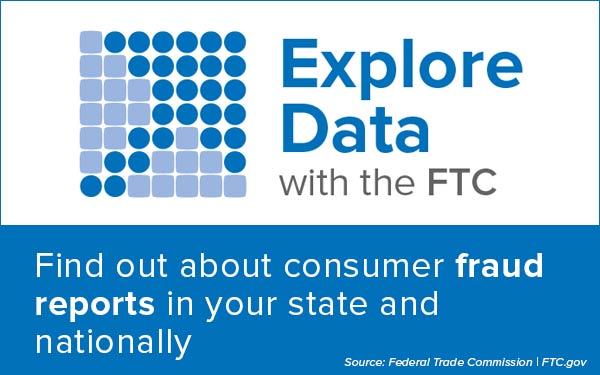The Federal Trade Commission is seeking public comments and suggestions on ways it can work more effectively with state attorneys general nationwide to help educate consumers about, and protect them from, potential fraud. The request for public information (RFI) announced today comes at the direction of the FTC Collaboration Act of 2021, which President Biden signed into law last October.
The Collaboration Act directs the FTC to “conduct a study on facilitating and refining existing efforts with State Attorneys General to prevent, publicize, and penalize frauds and scams being perpetrated on individuals in the United States.” It further requires the Commission to consult directly with interested stakeholders, as well as provide the opportunity for public comment and advice relevant to the production of the study.
“State attorneys general have long been valued partners of the FTC as we carry out our shared mission to protect consumers and ensure fairness in the marketplace,” said Samuel Levine, Director of the FTC’s Bureau of Consumer Protection. “The FTC welcomes this opportunity to deepen our relationship with attorneys general, and I am grateful to our Western Region Los Angeles team for taking the lead on this important initiative.”
As part of the RFI, the FTC is asking for comment on three specific topics that the study will address: 1) the roles and responsibilities of the Commission and state attorneys general that best advance collaboration and consumer protection, 2) how resources should be dedicated to best advance such collaboration and consumer protection, and 3) the accountability mechanisms that should be implemented to promote collaboration and consumer protection between the FTC at state attorneys general.
Specifically, the FTC is asking consumers and other interested stakeholders to weigh in on a wide array of issues affecting federal and state consumer protection collaboration, including:
- consumers’ views of the respective roles and responsibilities of the Commission and state attorneys general as they relate to consumer protection and preventing, publicizing, and penalizing frauds and scams;
- how, in practice, do the FTC and state attorneys general effectively collaborate and support each other’s consumer protection missions in several contexts;
- how the work of state and local consumer protection law enforcement agencies outside of state attorneys general facilitate and refine efforts between the Commission and state attorneys general;
- the extent to which federal law preempting state jurisdiction has affected the ability of state attorneys general to protect consumers from unlawful business practices;
- how the FTC can maximize use of, and contributions to, the Consumer Sentinel Network, through which law enforcers nationwide submit and receive consumer complaints;
- how resources should be dedicated to best advance collaboration and consumer protection missions between the FTC and state attorneys general in a variety of contexts;
- the effectiveness of the current exchange of technical or subject matter expertise between the FTC and state attorneys general when collaborating on consumer protection matters;
- resources or new authorities and information-sharing practices that may be needed or improved to enhance law enforcement collaboration; and
- additional performance indicators or metrics that the Commission should consider reporting, or other mechanism that should be implemented to measure the effectiveness of the FTC’s consumer protection collaboration with state attorneys general.
The Commission vote approving the RFI and publication of the related notice in the Federal Register was 3-0, with Chair Lina Khan issuing a separate statement, in which she was joined by Commissioners Rebecca Kelly Slaughter and Alvaro M. Bedoya. The public will have 60 days to submit comments at Regulations.gov. Once submitted, comments will be posted to Regulations.gov.
The lead staff attorneys on this matter are Robert Quigley and Miles Freeman in the FTC’s Western Region Los Angeles.
The Federal Trade Commission works to promote competition and protect and educate consumers. The FTC will never demand money, make threats, tell you to transfer money, or promise you a prize. Learn more about consumer topics at consumer.ftc.gov, or report fraud, scams, and bad business practices at ReportFraud.ftc.gov. Follow the FTC on social media, read consumer alerts and the business blog, and sign up to get the latest FTC news and alerts.

